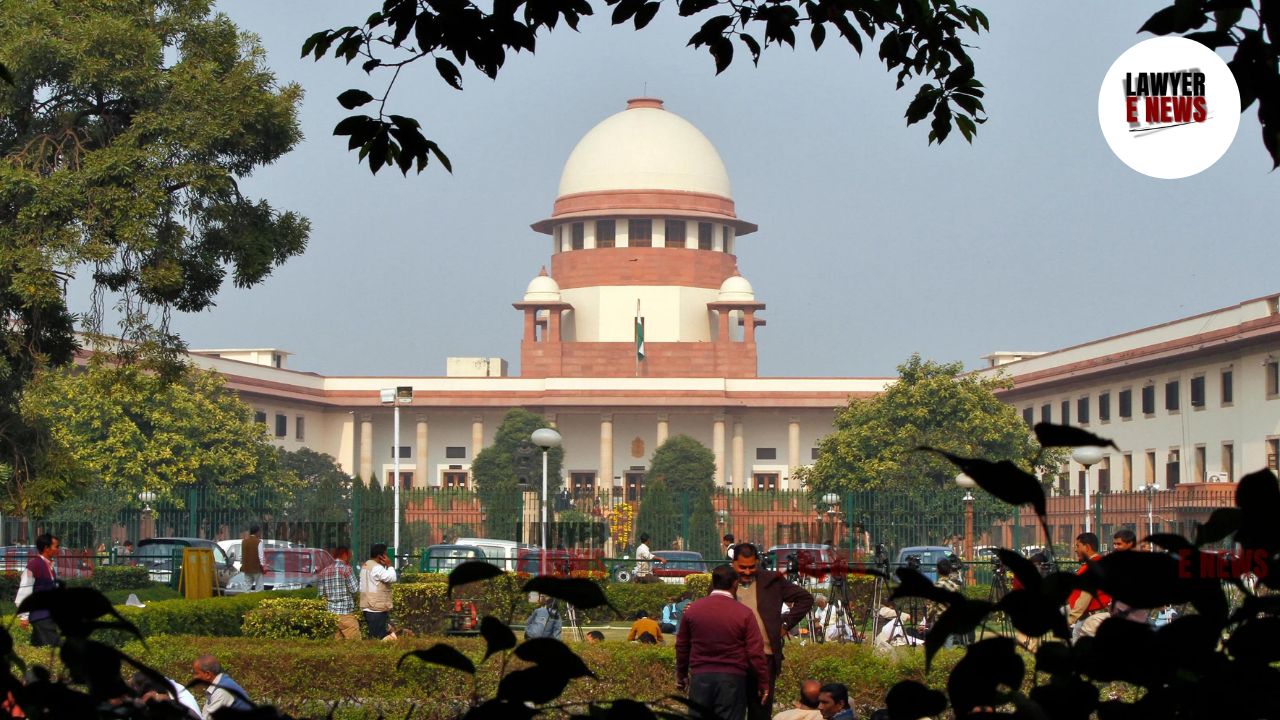-
by Admin
15 February 2026 5:35 AM



"The higher threshold for invoking Section 306 IPC must be strictly adhered to. Mere heated exchanges or demands for repayment do not amount to instigation," observed the Supreme Court while discharging the appellant. Supreme Court quashed charges of abetment of suicide under Section 306 of the Indian Penal Code (IPC) against the appellant, Mahendra Awase. The charges stemmed from allegations that the appellant's conduct and verbal exchanges over a loan dispute led to the suicide of Ranjeet Singh. The Court emphasized that for an abetment of suicide charge to stand, there must be evidence of direct or indirect acts of instigation or intentional aiding, which was absent in this case.
The two-judge bench comprising Hon'ble Justice K.V. Viswanathan and Hon'ble Justice Abhay S. Oka observed that framing of charges under Section 306 IPC requires clear evidence of "mens rea" (guilty mind) and proximate causation between the accused's actions and the suicide. The Court also highlighted the need for sensitivity and caution in such cases to prevent misuse of the legal process.
"Instigation Must Be Clear and Intentional"
The appellant, a loan recovery agent, was accused of mentally harassing Ranjeet Singh to repay a loan guaranteed by him for a third party. Ranjeet left a suicide note alleging that the appellant was harassing him, and audio recordings of their conversations were submitted as evidence. However, the Court found that these exchanges, while heated, did not amount to instigation as defined under Section 107 IPC. The bench reiterated, "Words uttered in anger or frustration, without the intent to instigate, cannot constitute abetment under Section 306 IPC."
The Court cited its previous rulings, including Madan Mohan Singh v. State of Gujarat (2010) and Ramesh Kumar v. State of Chhattisgarh (2001), which clarified that there must be a direct or indirect act of provocation, conspiracy, or facilitation that leaves the victim with no option but to commit suicide. In this case, the appellant's actions were limited to attempting to recover the loan, which was part of his professional duties.
Analysis of Evidence: Suicide Note and Audio Transcripts
The suicide note stated that the deceased was taking his life "because of harassment" by the appellant related to a loan. Additionally, audio transcripts captured the appellant asking the deceased to repay the loan, with some harsh language and threats to report the matter to higher authorities. However, the Court held that such demands, even if delivered with a stern tone, could not be construed as abetment to suicide.
The bench observed: "The appellant’s conduct, viewed realistically and in context, does not exhibit an intent to instigate suicide. Heated exchanges or hyperbolic statements made in professional dealings cannot be glorified as instigation unless accompanied by clear evidence of intent."
The Court also noted the delay of over two months and 20 days in filing the FIR, which raised doubts about the veracity of the allegations.
"Higher Threshold for Section 306 IPC"
The Court criticized the casual invocation of Section 306 IPC in cases where the ingredients of the offense were not met. Justice Viswanathan emphasized: "While those genuinely culpable should not be spared, Section 306 IPC should not be deployed as a tool for baseless prosecutions to appease the family of the deceased. The law mandates a higher threshold for such charges, requiring specific acts of instigation or abetment."
The judgment further underscored the responsibility of investigating agencies and trial courts to exercise caution. The Court remarked: "Trial courts must not adopt a play-it-safe approach by mechanically framing charges. Investigating agencies must ensure that the law is followed in letter and spirit to prevent abuse of the legal process."
The Supreme Court held that the charges against the appellant were groundless and quashed all proceedings against him under Section 306 IPC. The Court stated: "The appellant’s actions, albeit heated, were part of his professional duties and did not create circumstances compelling the deceased to take the extreme step."
The bench also set aside the orders of the trial court and the Madhya Pradesh High Court, which had earlier upheld the framing of charges. The appellant was discharged from all proceedings in Sessions Case No. 19 of 2023 pending before the First Additional Sessions Judge, Khargone District, Mandleshwar.
The judgment reiterates the consistent position of the Supreme Court that charges under Section 306 IPC require clear evidence of intent and proximate causation. The Court's observations underline the importance of judicial scrutiny in cases of alleged abetment of suicide to prevent misuse of the legal process. By quashing the baseless charges against the appellant, the Court has set a significant precedent for ensuring that the threshold for invoking Section 306 IPC is not diluted.
Date of Decision: January 17, 2025
